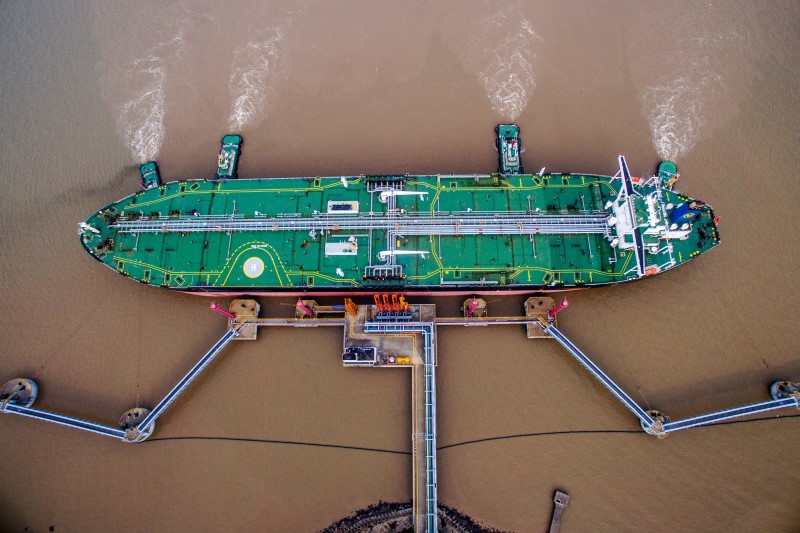* Key Middle East oil terminal bans open-loop scrubbers
* Quarter of bunker fuel hubs have now banned open-loop scrubbers
* Shippers will be forced to find cleaner solutions
By Roslan Khasawneh
SINGAPORE, Jan 23 (Reuters) - Fujairah in the United Arab Emirates has become the latest major port to ban a type of fuel exhaust cleaning system to comply with a coming tightening in rules regarding global sulphur emissions, mirroring similar moves in Singapore and China.
Under International Maritime Organization (IMO) rules that come into effect from 2020, ships will have to reduce the sulphur content in their fuel to less than 0.5 percent, compared with 3.5 percent now, forcing huge changes upon global shippers and also oil refiners. harbour master said in a faxed document seen by Reuters that the port "has decided to ban the use of open-loop scrubbers in its waters ... (and) ships will have to use compliant fuel once the IMO 2020 sulphur cap comes into force."
This follows top marine fuelling port of Singapore announcing a similar move in November, while China banned the use of open-loop scrubbers from Jan. 1, 2019. China and Fujairah marine sales volumes represent a quarter of global ship refuelling, also known as bunkering.
IMPACT FOR SHIPPERS
To comply with IMO 2020 rules, shippers can switch to burning cleaner but more expensive oil, invest in exhaust cleaning systems known as scrubbers that may allow them to still use cheaper high-sulphur fuels, or redesign vessels to run on alternatives like liquefied natural gas (LNG).
Scrubbers use water to clean up fuel emissions, preventing them from being released into the atmosphere.
Open-loop scrubbers are the cheapest option, but they have come under criticism as they wash heavy metals and sulphur from the waste water into seas instead of storing it for a controlled discharge in ports, as closed-loop scrubbers do.
Of the more than 2,000 ships that have so far opted to invest in scrubbers, around three-quarters have installed the cheaper, open-loop type, shipping sources estimated.
Closed-loop scrubbers, which store wash water for later discharge, are still accepted in most ports.
Despite the spreading bans of open-loop scrubbers, Douglas Raitt of ship classifier Lloyd's Register said vessels can still benefit from such systems as they can pump out the waste water in open seas, outside a port's jurisdiction.
"The benefits of open-loop scrubbers are largely realised in open water during transit from one port to the next," he said.
Ashok Sharma, managing director of shipbroker BRS Baxi in Singapore, said "the bigger ships with larger fuel consumption on long haul voyages will still realise substantial savings" from open-loop scrubbers that can pump the waste water into the ocean.
Lloyd's Raitt said shippers should also consider alternative measures to prepare for IMO 2020, considering that when the new rules come into force refuelling infrastructure will be mostly geared towards compliant low sulphur fuel oil (LSFO) rather than high sulphur fuel oil (HSFO).
"Prevailing wisdom would be for operators opting for scrubbers to have a meaningful dialogue with their supplier base to secure HSFO post-2020 in ports of call," Raitt said.
In a sign of how the industry is preparing for the IMO change, Sinopec's 600028.SS Shanghai refinery has produced its first batch of low-sulphur bunker fuel totalling 6,000 tonnes, the company said on Wednesday.
Sinopec, which is Asia's biggest oil refiner, said the Shanghai refinery was the first in China to produce low sulphur fuel oil to meet new IMO rules. GRAPHIC: Major Bunker Ports
https://tmsnrt.rs/2T6DJ3P
^^^^^^^^^^^^^^^^^^^^^^^^^^^^^^^^^^^^^^^^^^^^^^^^^^^^^^^^^^^>
